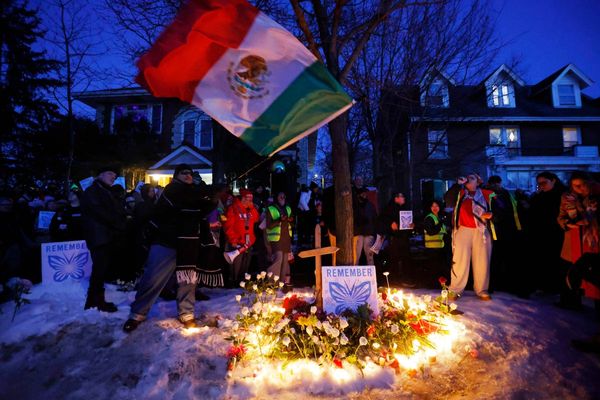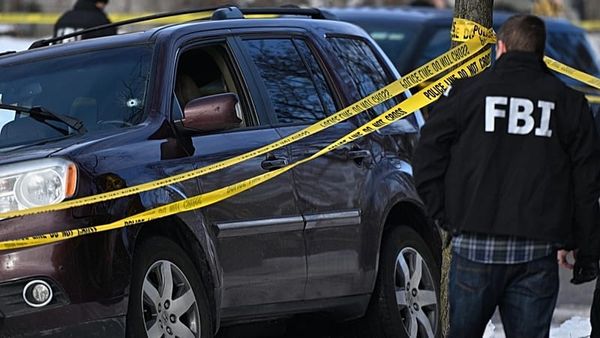
On the morning of 31 January 1984 Ann Lovett put a pair of scissors in her school bag and left her home in Granard, a small town in County Longford, Ireland.
It was cold and wet. The 15-year-old was in her uniform but did not go to school. She went to the deserted grotto of St Mary’s church, lay down on gravel, removed her underwear and gave birth in the rain.
Lovett cut the umbilical cord and wrapped the baby boy, who was dead, in her coat. Lovett’s own life slowly bled out of her. By the time she was discovered and taken to hospital it was too late.
Four decades later, the shocking case continues to haunt Ireland – and colour attitudes to abortion. A new film has put Lovett’s story on cinema screens at the same time as an official report has recommended a loosening of abortion rules.
The film Ann, directed by Ciaran Creagh, has revived interest in Lovett’s case and its role in Ireland’s transformation from conservative Catholicism to secular liberalism.
“It was hugely influential,” said Mary Favier, a GP and co-founder of the advocacy group Global Doctors for Choice. “It was the first time we thought ‘We have to do something differently.’ You couldn’t say it galvanised the movement but it clarified the need for a movement.”
Individual stories such as Lovett’s fuelled the campaign to lift a near-total constitutional ban on abortion, said Favier. “There was no way people could not be moved by it – how young she was, how isolated.”
Ireland voted overwhelmingly in a 2018 referendum to lift the ban, paving abortion services in 2019. Last month, a government-commissioned review of the legislation and services, conducted by a barrister, Marie O’Shea, recommended relaxing some rules, including a three-day wait between requesting an abortion and accessing one.
The government has not taken a decision, and anti-abortion activists oppose any relaxation, but the fact Ireland is considering further liberalisation is a dramatic contrast to the US, where several states have made abortion prohibited or inaccessible.
One reason Lovett’s death had such impact in Ireland was that it came only five months after a referendum had enshrined an abortion ban in the constitution. The tragedy humanised the dilemma faced by girls and women who were pregnant and not married, a social taboo.
Lovett had concealed her pregnancy – relatives, neighbours and teachers all later said they were unaware – and carried the baby to full term.
Ann, which was released in Ireland on 28 April, is the first screen dramatisation. It cost €200,000 (£177,000) and was backed by the national broadcaster, RTE, and private investors in the US.
Instead of Granard, where memories remain fraught, the film was shot in Boyle, County Roscommon. The local priest permitted filming on church grounds after being shown the script, said Creagh. “He realised that this wasn’t a film to bash the Catholic church. This was a time when the church, the state, the public, a whole collective, were in the wrong.”
Despite the harrowing story, audiences have responded positively at screenings and Q&As, said the director. “The response has been amazing. The main thing I’m getting is thanks for shining a light on this.”
Reviewers have lauded the film, especially its lead actor, Zara Devlin, for her portrayal of the schoolgirl. “An honourable tribute to those who failed to escape the clawing theocratic gravity,” said the Irish Times. “Neither Ann’s memory nor her story has left our national psyche,” said the Irish Examiner.
While Ireland considers further liberalisation, human rights organisations have urged the UN to intervene over the curbing of abortion rights in the US. Last month, nearly 200 organisations and experts said the overturning of the federal constitutional right to abortion in 2022 had left 22 million women and girls of reproductive age living in states where abortion was banned or inaccessible.
Favier said Ireland’s abortion rights movement no longer looked to the US for leadership. Both countries had broadly similar levels of public support for abortion rights but the US religious right had effectively “captured” part of the democratic process, she said. “Our change was grassroots and community-built. It went to citizens and got a vote overwhelmingly in favour. That mandate was so important.”







